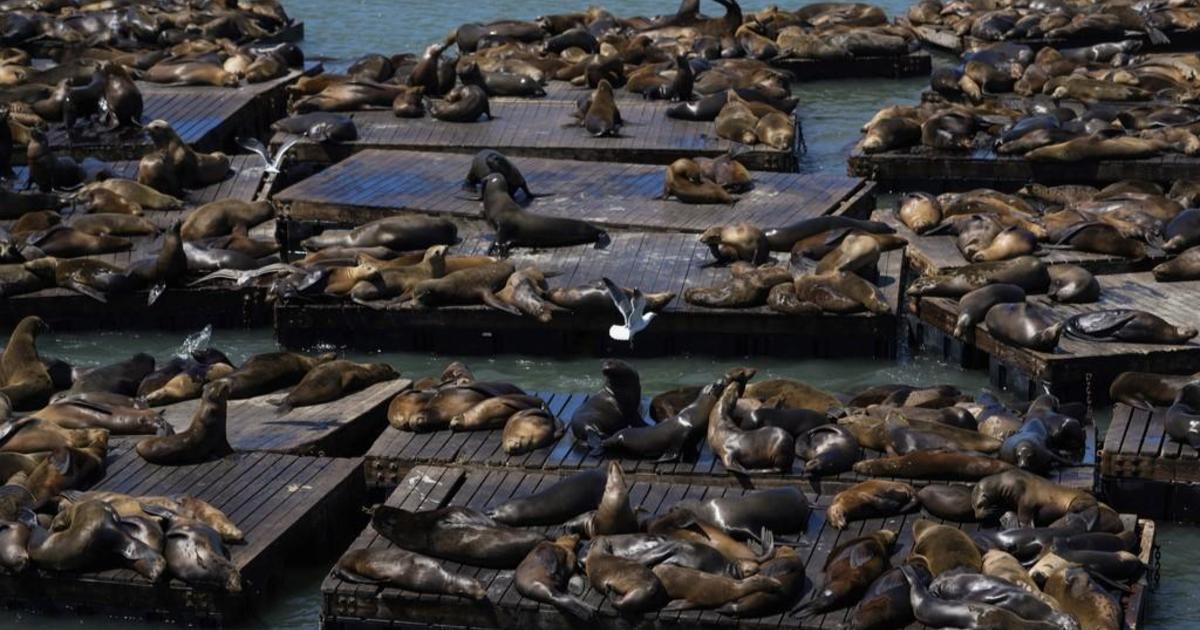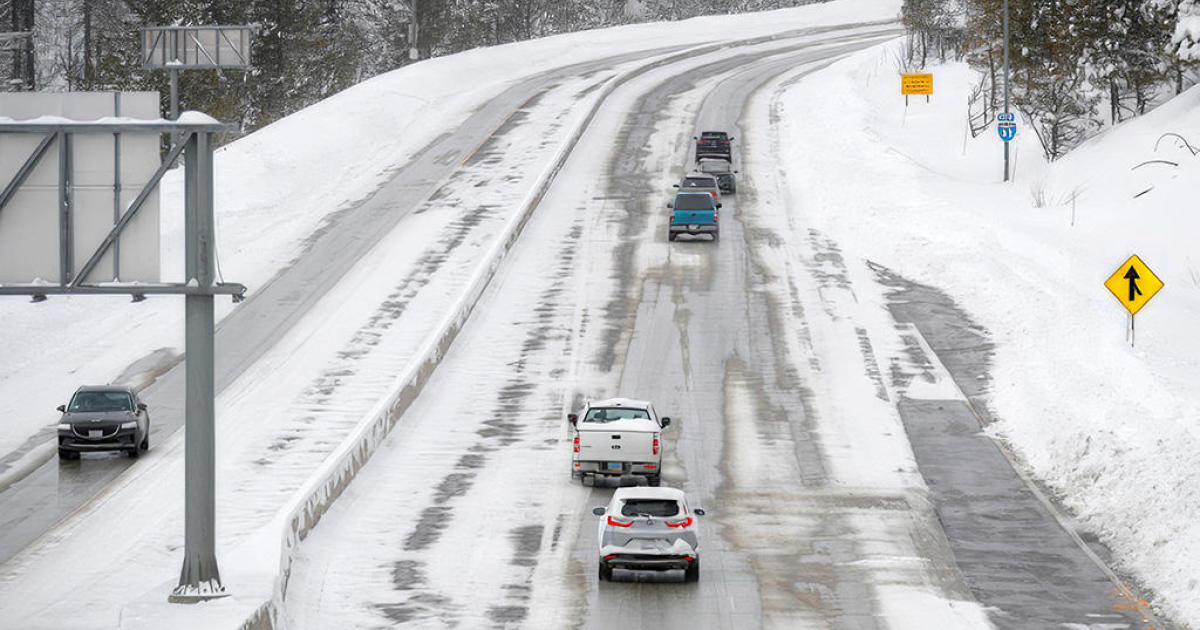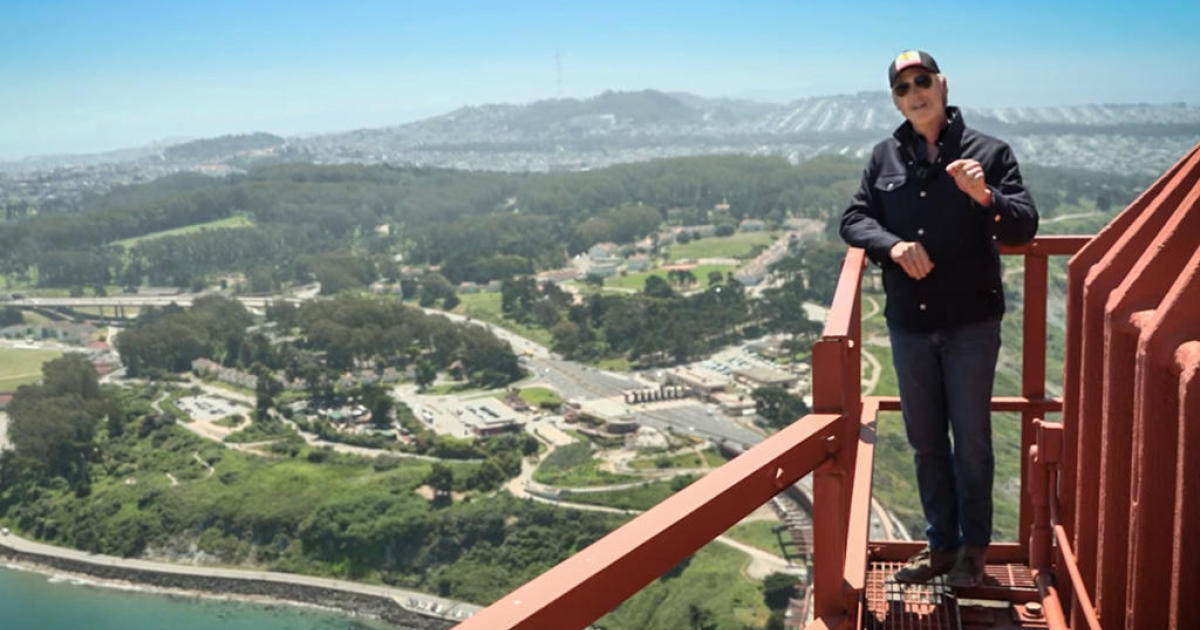Debate grows over parched California's thirsty crops
LOS ANGELES -- It's just 9 in the morning in eastern Riverside County's Palo Verde Valley and farmer Jack Seiler's workday is already half finished.
He stopped to scrutinize a bushy shrub of cotton that he is cultivating in Blythe.
"Hopefully, those will stick and make a ball," he said as he viewed and rotated the plant in his hand.
In this desert farming community on the Arizona border, daytime temperatures routinely exceed 100 degrees and that's no problem for these crops.
"Cotton likes the heat," Seiler remarked.
Another crop that can thrive in extreme heat? Afalfa. On his farm, Seiler grows thousands of acres of it. Once matured, the crop is mowed, baled and prepared for shipping. He pointed to a loaded truck headed for a dairy in Bakersfield.
"It's a hot commodity," Seiler said. "They're coming for it."
Alfalfa is what dairy cows eat and California is big in dairy production. Dairy products and milk are valuable commodities, pulling in close to $7.5 billion per year but, in a drought, many people question whether crops like alfalfa should be grown here.
UC Riverside economist Chris Thornberg is one such critic.
"The last thing you do is give water to farmers to waste it by growing stuff in the desert that should never be grown, " Thornberg said.
Thornberg's gripe with Seiler's farm and others here is the amount of water they use.
Seiler's farm borders the Colorado River. His family has owned the land since 1967 and it came with the right to use as much river water as needed to grow any crop he chooses.
Bart Fisher is also an alfalfa grower in Blythe.
"My grandfather settled here 104 years ago at a time when the federal government wanted to feed and populate the West," Fisher said.
He explained how his forefathers built a series of irrigation canals and staked a legal claim on Colorado River water.
"In Western water law, you have 'first in use, first in right,'" Fisher said.
Imperial and Palo Verde Valley farmers were first to lay claim to the river's water, meaning they are last to be impacted by water restrictions.
Fisher and Seiler sell the bulk of the alfalfa hay they grow to dairy farms in California and Arizona.
"When you open the next cup of yogurt, some of that in there came from alfalfa," Seiler said.
That sort of argument doesn't move Dr. Thornberg.
"The idea that we need to grow hay in the desert to feed livestock is nonsensical," Thornberg said.
Thornberg points out how 16 percent of the alfalfa grown in California is shipped all the way to Saudi Arabia to feed the dairy cattle in that desert realm. The irony? Saudi Arabia banned growing alfalfa because of water shortages there.
"I will not agree that we should allow Saudi Arabian cows and horses a higher deference to our own environment," Thornberg said.
Saudi cows aside, up to 80 percent of all California water is currently used for agriculture.
Given California's megadrought, Thornberg said that's too much.
"We over allocate this incredibly scarce resource on the basis of 100-year-old contracts," Thornberg noted.
Thornberg's solution is to grow these crops in cooler, wetter states and send the water saved to Southern California cities.
That way of thinking did not sit well with the farmers.
"Oh, you can say, 'Just grow the hay in Arkansas.' But what about all the dairies in California?" Fisher asked.
"Well, we're first-priority right here and we're hoping that, you know, that means something," Seiler added.
Thornberg is not persuaded.
"You owned a hunk of land for 50 years? OK, I bought a hunk of land in Los Angeles and -- damn it! -- I think I should be able to grow grass in my front yard. How are my rights any less important than your rights?" he asked.
Gerri Constant contributed to this report




